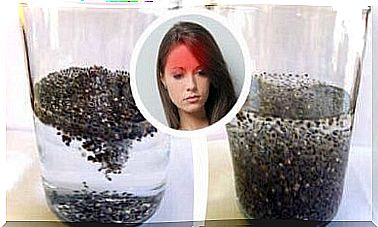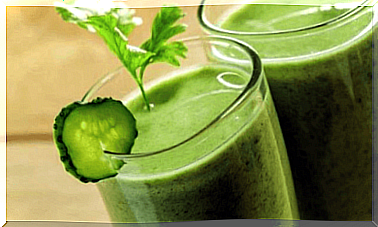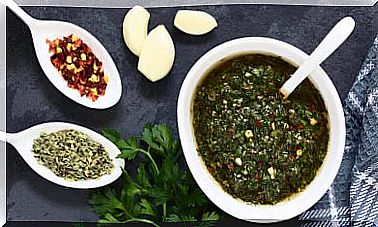10 Foods Nutritionists Wouldn’t Eat

Some foods don’t have proper safety checks and nutritionists would never eat them.
According to studies conducted by the Center of Disease Control in the United States, millions of people are sickened by foodborne pathogens.
Many are hospitalized and others die from diseases contracted from the food they eat.
This is due to the way they process food and the way food pathogens find their way to our plates.
It is very difficult to find the sources of diseases. Researchers are also unable to find the cause of these diseases.
List of Foods Nutritionists Would Never Eat
1. Unpasteurized juices and milk
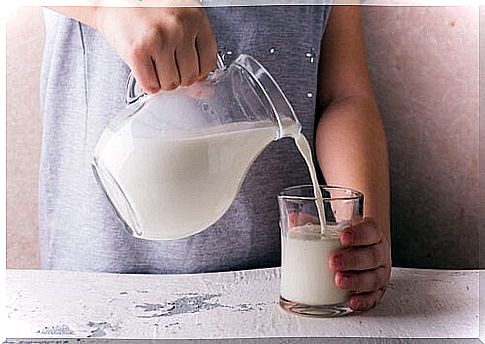
These foods can be contaminated with viruses, parasites and bacteria such as Salmonella, E. coli and Listeria.
Between 1993 and 2006, approximately 1,500 people in the United States became ill from drinking unpasteurized milk or milk derivatives.
Raw foods are 150 times more likely to cause disease than pasteurized dairy products.
When drinking juice or milk, check to see if it says ‘pasteurized’ on the label.
2. Canned tomatoes
Canned food is dangerous because of the resin coating in the cans.
This is because it contains a toxic chemical (BPA) that has been linked to heart problems, diabetes and obesity.
- To avoid this dangerous substance, it is best not to use canned food.
- It is also recommended to eat fresh fruits and vegetables, especially sour varieties such as tomatoes.
3. Sprouts or bean sprouts
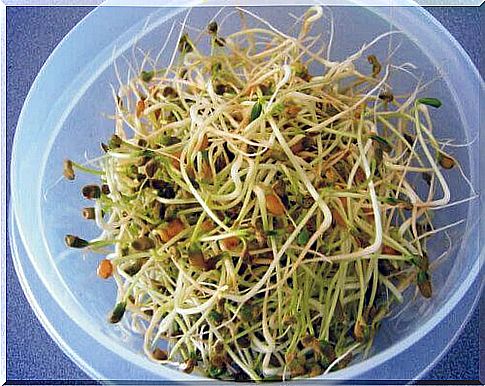
According to several nutritionists, raw or semi-raw sprouts, such as alfalfa or soy sprouts, may be linked to various bacterial outbreaks (mainly Salmonella and E. coli).
Any type of sprout can spread bacterial infections that develop in the seeds. However, specialists say that if we eat them cooked there is no risk.
4. Sugary Soft Drinks
These are directly related to obesity. Many are made from tea extract or plants with added sugar.
In addition, they not only encourage weight gain but also increase the chance of getting cavities in your teeth.
- The World Health Organization recommends consuming no more than 50 grams of sugar per day. A sugary drink usually contains 35 grams per glass.
- Nutritionists reject these drinks because of the high sugar concentration. They are therefore associated with diseases such as cardiovascular problems or with the possibility of developing type 2 diabetes.
5. Raw Oysters and Mollusks
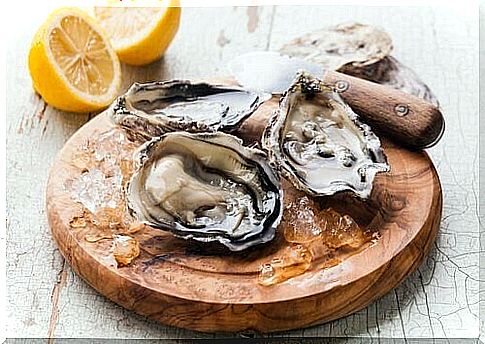
Mollusks, especially oysters, are the source of many food poisonings.
Oysters are filtering animals. They collect everything that is in the water. As a result, they absorb a lot of bacteria. So if they are in your body, they will pass it on.
Experts therefore say that it is not worth the risk.
6. Commercial Apples
Apples are grown individually. As a result, each variant retains its distinctive taste. Therefore , they do not develop resistance to pests and are often disinfected with pesticides.
- These pesticides and toxins are beginning to be associated with Parkinson’s disease.
- It is best to eat organic apples.
- Otherwise, you should wash them well with neutral soap and a brush. You can also peel them before eating them.
7. Raw or semi-cooked eggs

While many people claim that consuming them raw increases the nutritional value of eggs, the experts say it is one of the most dangerous foods.
The problem with eggs is that they can get you infected with the salmonella virus.
8. Non-Organic Potatoes
They are treated with fungicides during the growing season and sprayed with herbicides. This is done to kill the fibrous roots before harvesting.
After they have been collected, they are treated again to prevent germination.
The solution is to buy organic potatoes. Washing is not enough to remove the chemicals that have been absorbed.
9. Microwave Popcorn

A 2009 study at the University of California found that the inside of a popcorn bag contains chemicals such as perfluorooctanoic acid (PFOA). This is associated with infertility in humans.
- Tests have been conducted and have shown that the chemicals damage the liver, can cause testicular problems and pancreatic cancer.
- The problem is that the microwaves cause the chemicals to evaporate and they then travel to the popcorn. These chemicals accumulate in your body for years.
- This can be avoided by using organic corn kernels and cooking them in a pan.
10. Soy
The problem with soy is that 94% of the soybeans that grow in America, for example, are transgenic.
Glyphosate can cause damage to DNA and chromosomes in mammals and also in human cells.
Therefore, it is not recommended to consume it as is, unless in a fermented form.






